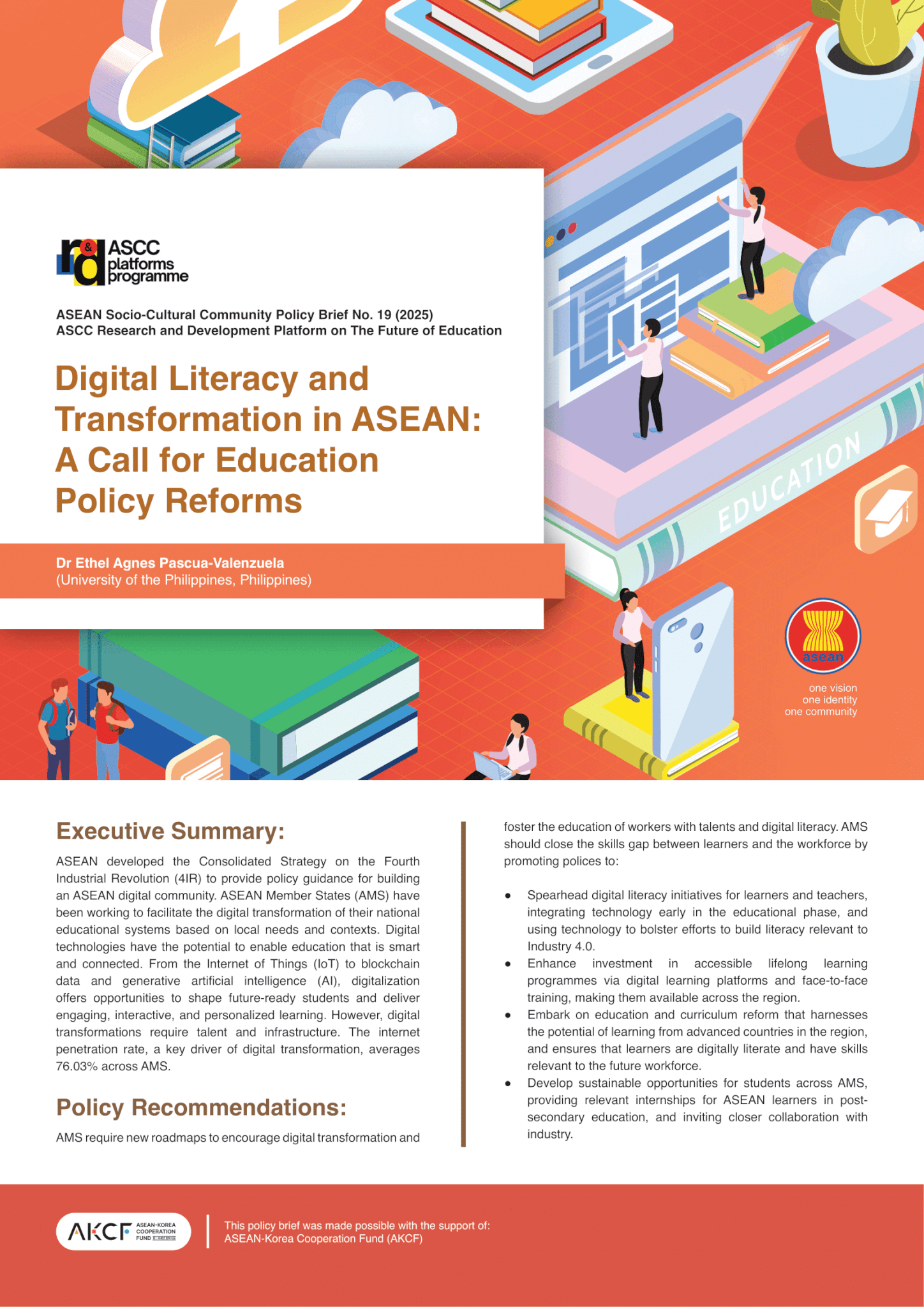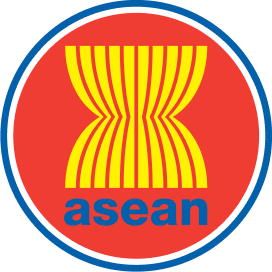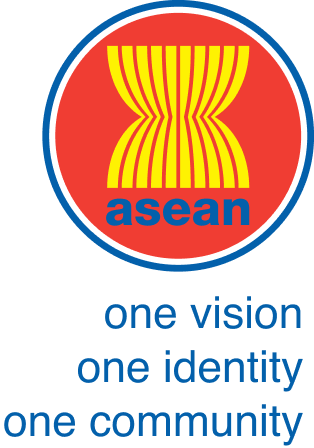

EXECUTIVE SUMMARY
ASEAN developed the Consolidated Strategy on the Fourth Industrial Revolution (4IR) to provide policy guidance for building an ASEAN digital community. ASEAN Member States (AMS) have been working to facilitate the digital transformation of their national educational systems based on local needs and contexts. Digital technologies have the potential to enable education that is smart and connected. From the Internet of Things (IoT) to blockchain data and generative artificial intelligence (AI), digitalization offers opportunities to shape future-ready students and deliver
engaging, interactive, and personalized learning. However, digital transformations require talent and infrastructure. The internet penetration rate, a key driver of digital transformation, averages 76.03% across AMS.
RECOMMENDATIONS
AMS require new roadmaps to encourage digital transformation and foster the education of workers with talents and digital literacy. AMS should close the skills gap between learners and the workforce by promoting polices to:
- Spearhead digital literacy initiatives for learners and teachers, integrating technology early in the educational phase, and using technology to bolster efforts to build literacy relevant to Industry 4.0.
- Enhance investment in accessible lifelong learning programmes via digital learning platforms and face-to-face training, making them available across the region.
- Embark on education and curriculum reform that harnesses the potential of learning from advanced countries in the region and ensures that learners are digitally literate and have skills relevant to the future workforce.
- Develop sustainable opportunities for students across AMS, providing relevant internships for ASEAN learners in post-secondary education, and inviting closer collaboration with industry.







